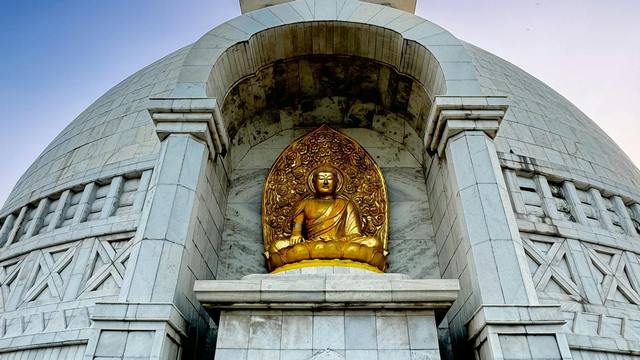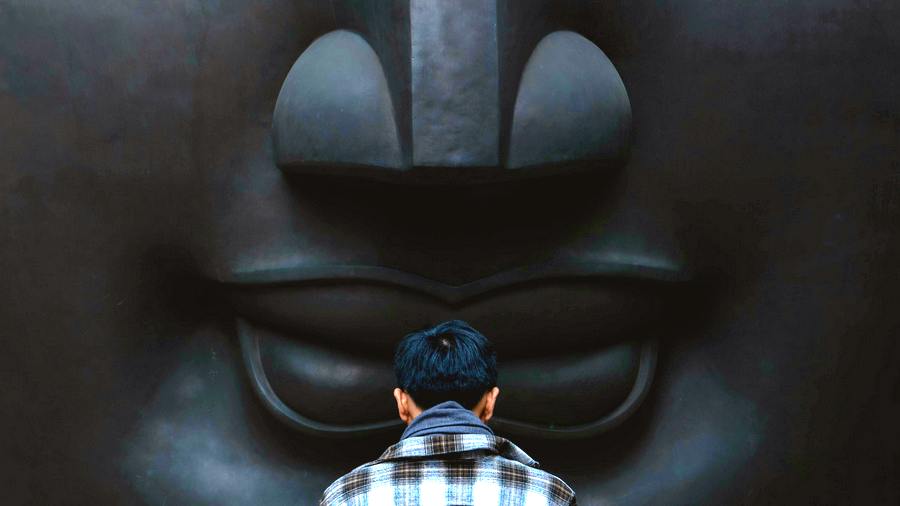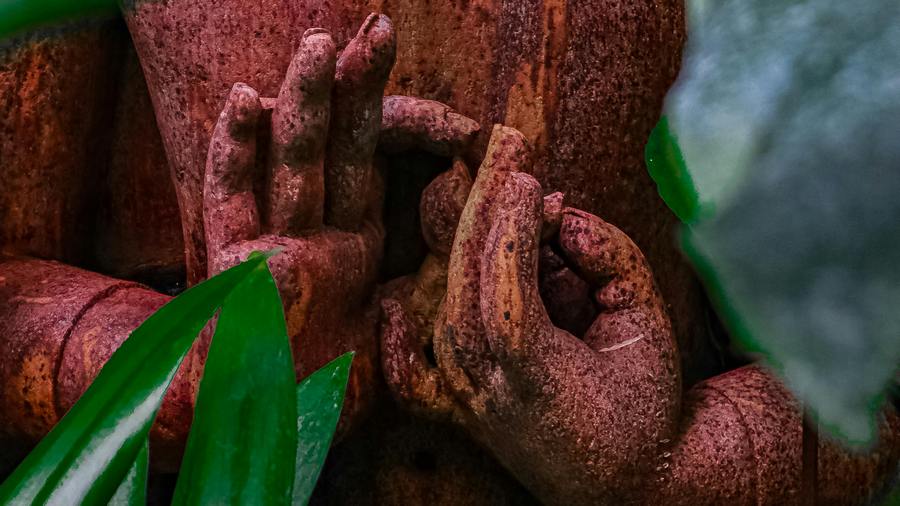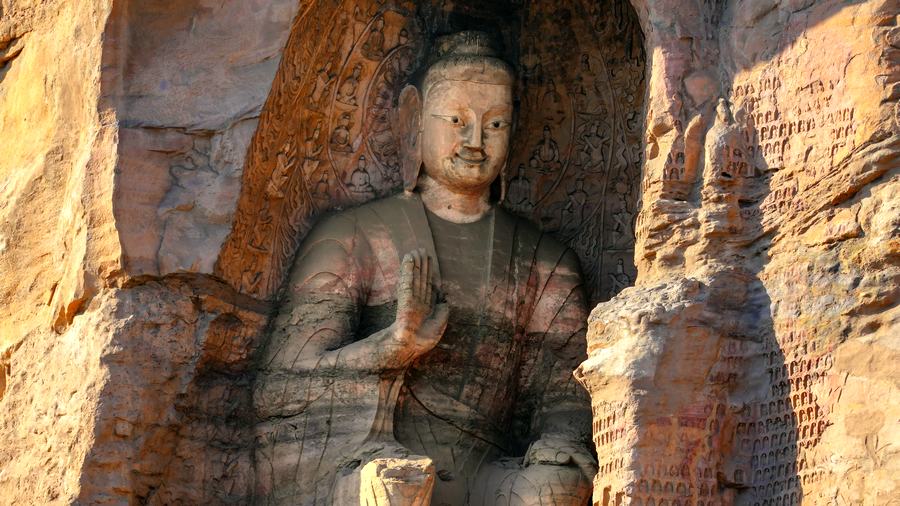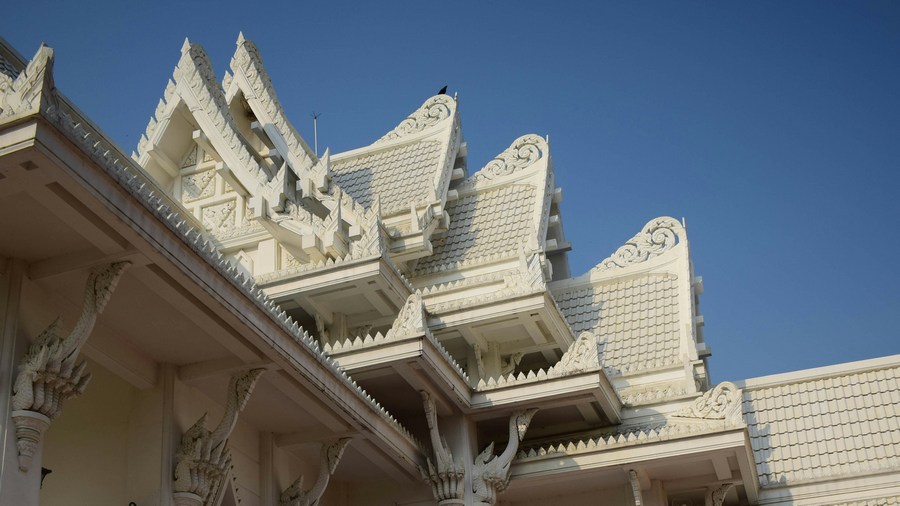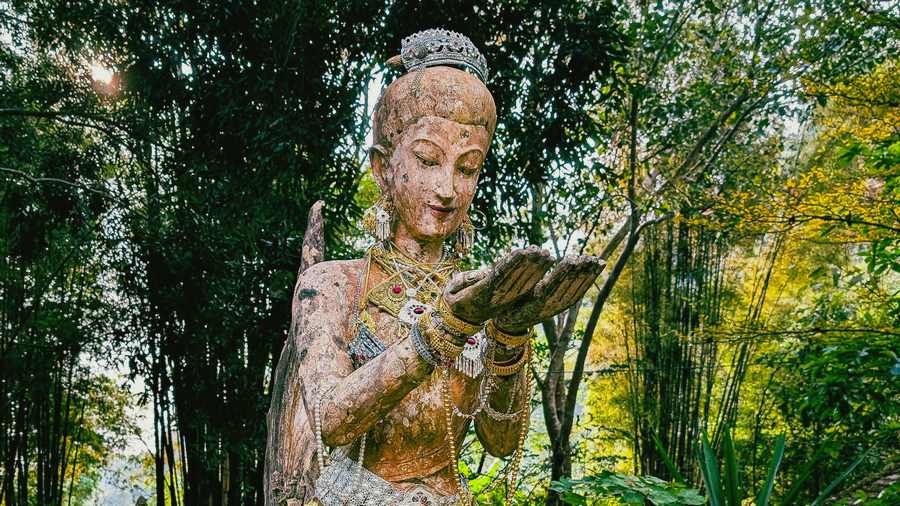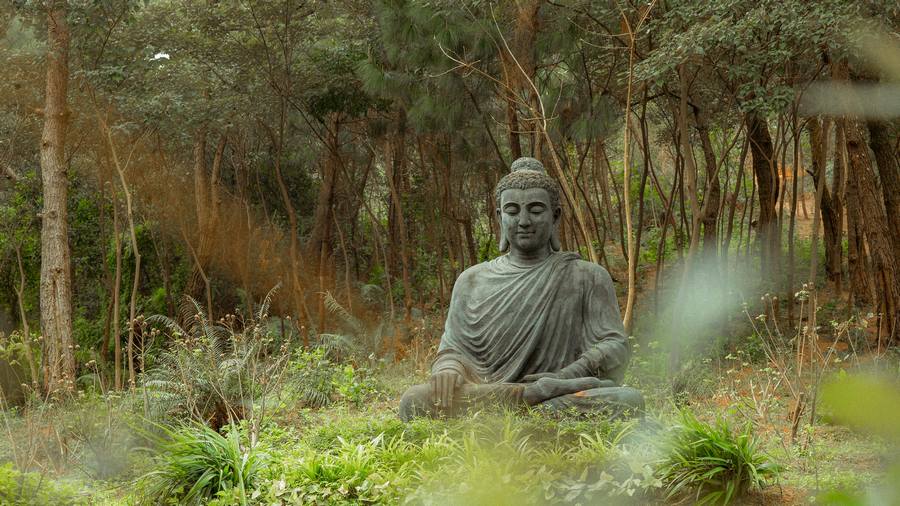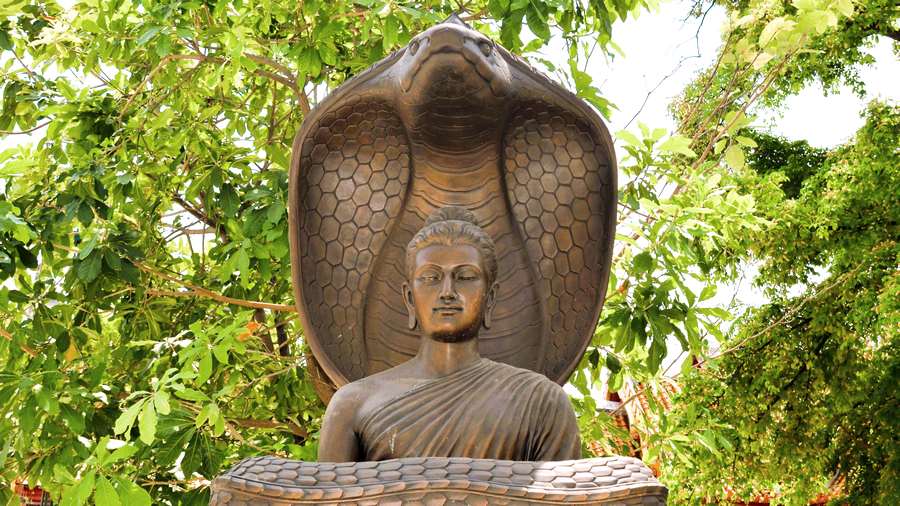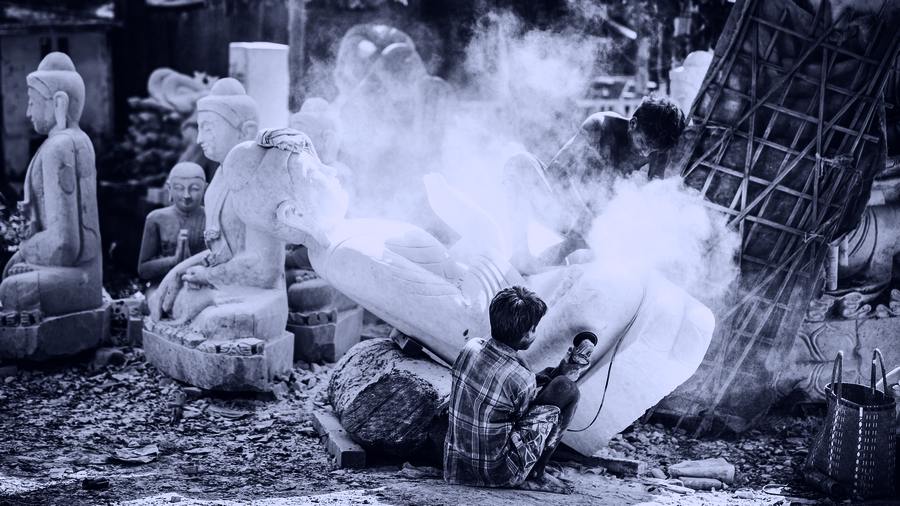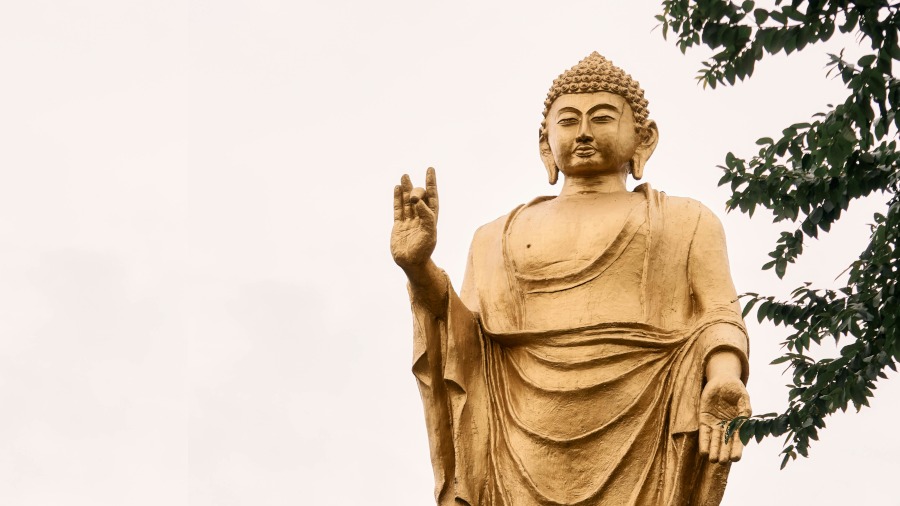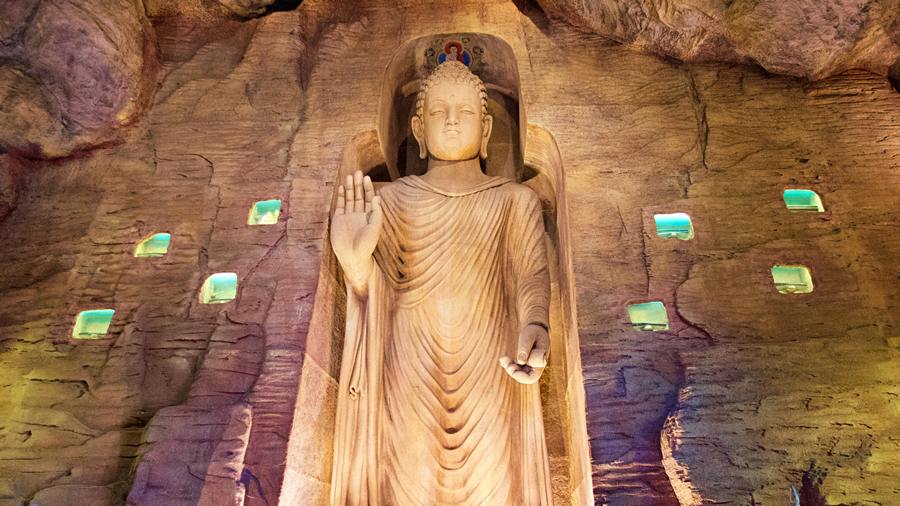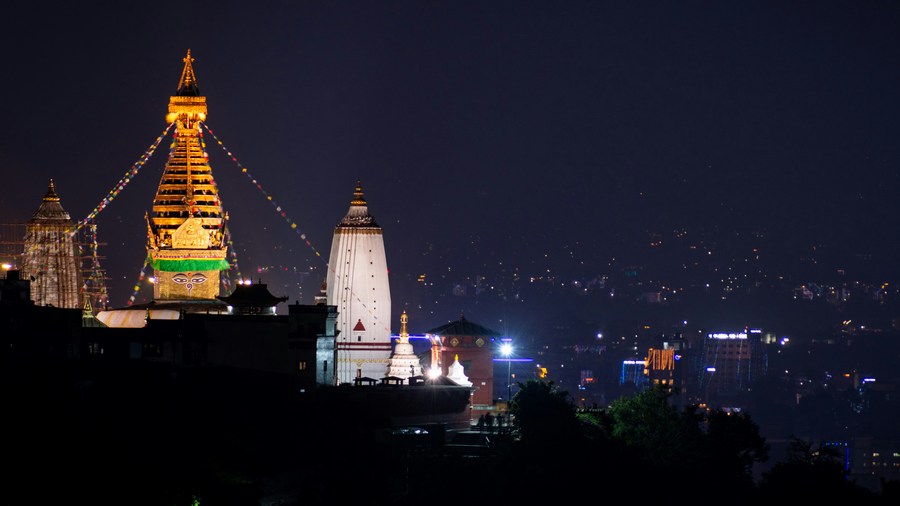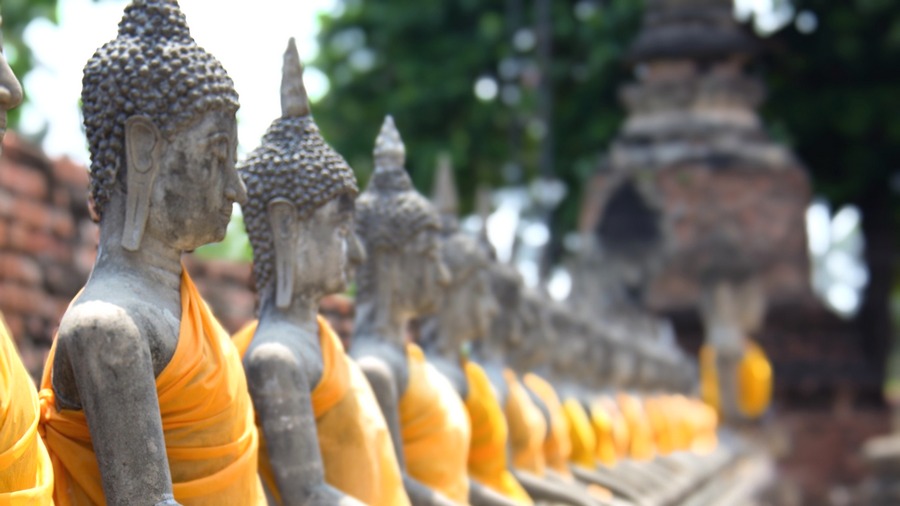[Content notice: Self inflicted death of arahant]
Thus have I heard. On one occasion the Blessed One was dwelling at Rajagaha in the Bamboo Grove, the Squirrel Sanctuary. Now on that occasion the Venerable Vakkali was dwelling in a potter’s shed, sick, afflicted, gravely ill. Then the Venerable Vakkali addressed his attendants:
“Come, friends, approach the Blessed One, pay homage to him in my name with your head at his feet, and say: ‘Venerable sir, the bhikkhu Vakkali is sick, afflicted, gravely ill; he pays homage to the Blessed One with his head at his feet.’ Then say: ‘It would be good, venerable sir, if the Blessed One would approach the bhikkhu Vakkali out of compassion.’”
“Yes, friend,” those bhikkhus replied, and they approached the Blessed One, paid homage to him, sat down to one side, and delivered their message. The Blessed One consented by silence.
Then the Blessed One dressed and, taking bowl and robe, approached the Venerable Vakkali. The Venerable Vakkali saw the Blessed One coming in the distance and stirred on his bed. The Blessed One said to him: “Enough, Vakkali, do not stir on your bed. There are these seats ready, I will sit down there.”
The Blessed One then sat down on the appointed seat and said to the Venerable Vakkali: “I hope you are bearing up, Vakkali, I hope you are getting better. I hope that your painful feelings are subsiding and not increasing, and that their subsiding, not their increase, is to be discerned.”
“Venerable sir, I am not bearing up, I am not getting better. Strong painful feelings are increasing in me, not subsiding, and their increase, not their subsiding, is to be discerned.”
“I hope then, Vakkali, that you are not troubled by remorse and regret.”
“Indeed, venerable sir, I have quite a lot of remorse and regret.”
“I hope, Vakkali, that you have nothing for which to reproach yourself in regard to virtue.”
“I have nothing, venerable sir, for which to reproach myself in regard to virtue.”
“Then, Vakkali, if you have nothing for which to reproach yourself in regard to virtue, why are you troubled by remorse and regret?”
“For a long time, venerable sir, I have wanted to come to see the Blessed One, but I haven’t been fit enough to do so.”
“Enough, Vakkali! Why do you want to see this foul body? One who sees the Dhamma sees me; one who sees me sees the Dhamma. For in seeing the Dhamma, Vakkali, one sees me; and in seeing me, one sees the Dhamma.
“What do you think, Vakkali, is form permanent or impermanent?”— “Impermanent, venerable sir.”…—“Therefore … Seeing thus … He understands: ‘… there is no more for this state of being.’”
Then the Blessed One, having given this exhortation to the Venerable Vakkali, rose from his seat and departed for Mount Vulture Peak.
Then, not long after the Blessed One had left, the Venerable Vakkali addressed his attendants thus: “Come, friends, lift me up on this bed and carry me to the Black Rock on the Isigili Slope. How can one like me think of dying among the houses?”
“Yes, friend,” those bhikkhus replied and, having lifted up the Venerable Vakkali on the bed, they carried him to the Black Rock on the Isigili Slope.
The Blessed One spent the rest of that day and night on Mount Vulture Peak. Then, when the night was well advanced, two devatās of stunning beauty approached the Blessed One, illuminating the whole of Mount Vulture Peak…. Standing to one side, one devatā said to the Blessed One: “Venerable sir, the bhikkhu Vakkali is intent on deliverance.” The other devatā said: “Surely, venerable sir, he will be liberated as one well liberated.” This is what those devatās said. Having said this, they paid homage to the Blessed One and, keeping him on their right, they disappeared right there.
Then, when the night had passed, the Blessed One addressed the bhikkhus thus: “Come, bhikkhus, approach the bhikkhu Vakkali and say to him: ‘Friend Vakkali, listen to the word of the Blessed One and two devatās. Last night, friend, when the night was well advanced, two devatās of stunning beauty approached the Blessed One. One devatā said to the Blessed One: “Venerable sir, the bhikkhu Vakkali is intent on deliverance.” The other devatā said: “Surely, venerable sir, he will be liberated as one well liberated.” And the Blessed One says to you, friend Vakkali: “Do not be afraid, Vakkali, do not be afraid! Your death will not be a bad one. Your demise will not be a bad one.”’”
“Yes, venerable sir,” those bhikkhus replied, and they approached the Venerable Vakkali and said to him: “Friend Vakkali, listen to the word of the Blessed One and two devatās.”
Then the Venerable Vakkali addressed his attendants: “Come, friends, lower me from the bed. How can one like me think of listening to the Blessed One’s teaching while seated on a high seat.”
“Yes, friend,” those bhikkhus replied, and they lowered the Venerable Vakkali from the bed.
“Last night, friend, two devatās of stunning beauty approached the Blessed One. One devatā said to the Blessed One: ‘Venerable sir, the bhikkhu Vakkali is intent on deliverance.’ The other devatā said: ‘Surely, venerable sir, he will be liberated as one well liberated.’ And the Blessed One says to you, friend Vakkali: ‘Do not be afraid, Vakkali, do not be afraid! Your death will not be a bad one. Your demise will not be a bad one.’”
“Well then, friends, pay homage to the Blessed One in my name with your head at his feet and say: ‘Venerable sir, the bhikkhu Vakkali is sick, afflicted, gravely ill; he pays homage to the Blessed One with his head at his feet.’ Then say: ‘Form is impermanent: I have no perplexity about this, venerable sir, I do not doubt that whatever is impermanent is suffering. I do not doubt that in regard to what is impermanent, suffering, and subject to change, I have no more desire, lust, or affection. Feeling is impermanent … Perception is impermanent … Volitional formations are impermanent … Consciousness is impermanent: I have no perplexity about this, venerable sir, I do not doubt that whatever is impermanent is suffering. I do not doubt that in regard to what is impermanent, suffering, and subject to change, I have no more desire, lust, or affection.’”
“Yes, friend,” those bhikkhus replied, and then they departed. Then, not long after those bhikkhus had left, the Venerable Vakkali used the knife.
Then those bhikkhus approached the Blessed One … and delivered their message. The Blessed One then addressed the bhikkhus thus: “Come, bhikkhus, let us go to the Black Rock on the Isigili Slope, where the clansman Vakkali has used the knife.”
“Yes, venerable sir,” those bhikkhus replied. Then the Blessed One, together with a number of bhikkhus, went to the Black Rock on the Isigili Slope. The Blessed One saw in the distance the Venerable Vakkali lying on the bed with his shoulder turned.
Now on that occasion a cloud of smoke, a swirl of darkness, was moving to the east, then to the west, to the north, to the south, upwards, downwards, and to the intermediate quarters. The Blessed One then addressed the bhikkhus thus: “Do you see, bhikkhus, that cloud of smoke, that swirl of darkness, moving to the east, then to the west, to the north, to the south, upwards, downwards, and to the intermediate quarters?”
“Yes, venerable sir.”
“That, bhikkhus, is Mara the Evil One searching for the consciousness of the clansman Vakkali, wondering: ‘Where now has the consciousness of the clansman Vakkali been established?’ However, bhikkhus, with consciousness unestablished, the clansman Vakkali has attained final Nibbāna.”
Read this translation of Saṁyutta Nikāya 22.87 Vakkalisutta: Vakkali by Bhikkhu Bodhi on SuttaCentral.net. Or read a different translation on SuttaCentral.net. Or listen on SC-Voice.net. Or explore the Pali on DigitalPaliReader.online.
Or read a translation in Deutsch, বাংলা, Español, Magyar, Bahasa Indonesia, 日本語, မြန်မာဘာသာ, Norsk, Português, Русский, සිංහල, ไทย, Tiếng Việt, or 汉语. Learn how to find your language.

